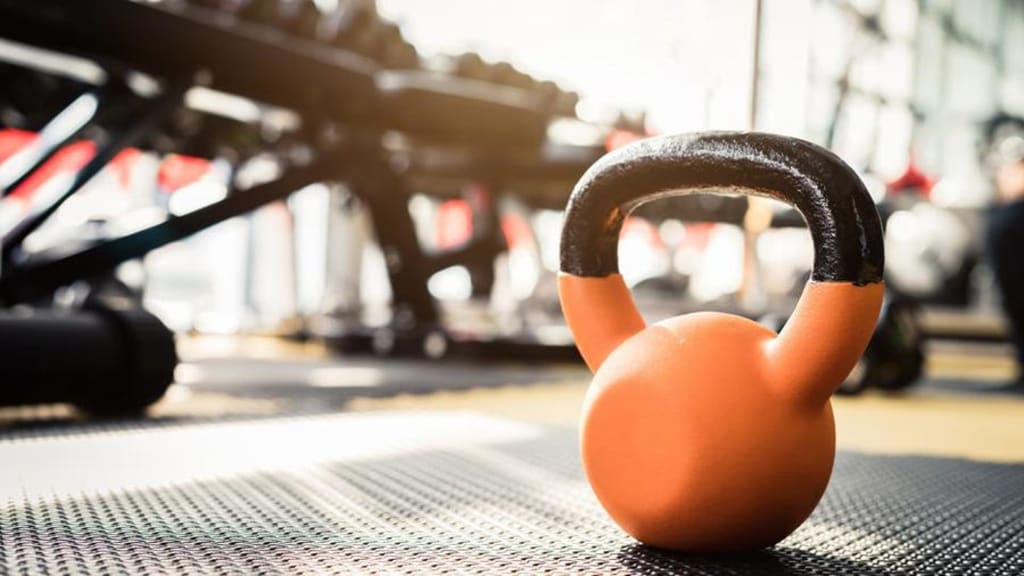7 physical and mental health benefits guaranteed by regular physical activity
Health experts recommend exercise to maintain overall health and reduce the risk of many diseases.

And if you're looking to improve your quality of life, ensure more energy and even add years to your lifespan, check out these 7 ways regular exercise can make you happier and healthier:
1. Weight control:
Exercise can help control your weight, prevent excessive weight gain, or maintain weight loss. And when you participate in physical activity, you burn calories. The higher the intensity of the activity, the more calories you will burn.
2. Exercise Fights Heart Disease
Physical activity boosts high-density lipoprotein, or “good” cholesterol, while lowering unhealthy triglycerides. This keeps blood flowing smoothly, reducing the risk of cardiovascular disease.
3. Mood improvement:
Physical activity stimulates different chemicals in the brain that may make you feel happier, more relaxed, and less anxious. You may also feel an improvement in your appearance when you exercise regularly, which may boost your confidence and improve your self-esteem.
4. Energy Boost:
Regular physical activity can improve your muscle strength and increase your endurance.
Exercise delivers oxygen and nutrients to your tissues and helps your cardiovascular system work more efficiently. And when your heart and lung health improve, you have more energy to handle your daily chores.
5. Helping You Sleep Better:
Regular physical activity can help you fall asleep faster, get better sleep, and deepen your sleep.
6. Enhance Sex Life:
Regular physical activity can improve your energy levels and increase your confidence in your physical appearance, which may enhance your sex life. Regular physical activity may enhance arousal in women, and men who exercise regularly are less likely to have erectile dysfunction problems than those who do not exercise.
7. Exercise can be fun and social:
Exercise gives you a chance to relax, enjoy the outdoors, or simply engage in activities that make you happy. Physical activity can also help you connect with family or friends in a fun social environment. Source: Medical Express
A cardiologist reveals the benefits of even 10 minutes of physical activity
Professor Nana Bogosova, a cardiologist, deputy director of the Chazov Center for Preventive Cardiology Research at the Russian Ministry of Health, announced that 10 minutes of physical activity is good for the heart.
In an interview with Gazeta.Ru, the professor points out that to maintain the health of the heart and blood vessels after the age of forty, it is enough to practice physical activity for 10 minutes a day.
And she says, "There is no need to practice intense physical activity, because that may be harmful to the body. That is, intense physical activity and its absence have a negative impact on health. So if a person exercises, walks actively, dances, or does some work for at least half an hour a day, In the garden, riding a bike, swimming, etc., it's definitely good for his health."
According to her, physical activity helps to raise the level of "good" cholesterol, which is necessary to combat the "bad" cholesterol.
She says: "The liver produces cholesterol, and then it is transported by the blood to all parts of the body in the form of a lipoprotein complex. HDL cholesterol cleans the blood vessels, as during its passage through them it picks up the 'bad' cholesterol and returns it to the liver. The best and healthiest way to raise the level of 'good' cholesterol is Doing physical activity. Source: Gazeta.Ru
From strengthening DNA to extending life Scientifically proven health benefits of drinking coffee
It is estimated that more than 2.25 billion cups of coffee are drunk daily worldwide. This large number of daily caffeine consumption raises the question of its impact on our general health.
In fact, various studies have found that coffee has several benefits for public health, including a study conducted by researchers from Harvard University, which was revealed last week, which says that drinking more coffee and tea can help live a long life.
The study showed that adults with type 2 diabetes were less likely to die early if they cut out sugary drinks and drank up to six cups of coffee a day.
The risk of death from cardiovascular disease for those with type 2 diabetes was also reduced by 18% for coffee drinkers.
Dr Sarah Perry, from the Department of Nutritional Sciences at King's College London, explains: "Coffee is rich in polyphenols, and its beneficial effects are likely to be linked to these compounds."
Here are some of the scientifically proven benefits of coffee:---
Long life
Research published in the European Journal of Preventative Cardiology found that drinking two to three cups of coffee a day was associated with a longer lifespan.
The same goes for instant and decaffeinated ground coffee.
Professor Peter Kistler, of the Baker Institute for Heart and Diabetes Research in Australia, said: "The results suggest that consuming moderate amounts of decaffeinated instant coffee should be considered as part of a healthy lifestyle."
Kidney protection
Your kidneys may thank you for drinking coffee, as results published in the journal Kidney International Reports, published by John Hopkins University in the US, show that one cup a day of the hot drink can reduce the risk of acute kidney injury.
The researchers found that compounds in coffee support kidney function.
Low mortality
A joint research project from Southern Medical University in Guangzhou, China, and the UK Biobank, published in the Annals of Internal Medicine, found that adults who drank 1.5 to 3.5 cups of coffee per day were less likely to die during seven years of follow-up.
More than 171,000 participants took part in the study, and researchers found that those who drank coffee were 16-21% less likely to die in the next seven years compared to participants who did not drink coffee.
Miracle healing
Dyskinesia (or dyskinesia) is a rare condition characterized by spasms and involuntary movements. Doctors from the Paris Brain Institute in Paris published a case of a child suffering from this condition who was able to return to normal life thanks to drinking coffee.
The same team conducted a study on patients with dyskinesia, and found in an experiment that 87% of the participants experienced an improvement in their symptoms or that the symptoms completely disappeared by drinking coffee.
Brain booster
Drinking coffee can reduce the risk of developing the neurodegenerative condition Parkinson's disease, especially in men, by up to 30%, according to ongoing research from the Institute for Scientific Information in the US.
And while there is currently no cure for Alzheimer's disease, a study from Edith Cowan University, Australia, found that participants who consumed more coffee had a slower rate of cognitive decline.
Reversing diabetes
Not only can coffee help relieve symptoms of type 2 diabetes, researchers from the Harvard School of Public Health also found that it can reduce your risk of developing the silent killer at all.
Study participants who increased their coffee consumption by one cup per day over four years had an 11% lower risk of developing type 2 diabetes.
Heart help
A cup of coffee does more than just keep you alert. A study published in the European Journal of Preventative Cardiology, from the Becker Institute for Heart and Diabetes Research, found that consuming up to five cups a day reduces the risk of heart failure and stroke.
Two to three cups a day was the optimal amount, according to the research, which reduced the risk of developing both conditions by about 20%.
Liver protection
A report found that drinking coffee may prevent liver cancer. The World Health Organization also confirmed the protective effects of coffee on liver cancer after reviewing more than 1,000 studies.
In addition to protecting the liver, researchers found that coffee also reduces the risk of cirrhosis, whether it's instant, filtered or espresso.
strong nucleic acid
It's impossible to repair DNA, but drinking coffee has been shown to keep it in better shape, which reduces cell damage.
DNA damage can lead to cancer.
And a UCLA study found that coffee protects DNA against liver, uterine, and colorectal cancers.
Another study from the National Health Examination Service in Oslo, Norway, published in the Cancer Causes & Control Journal, also found that coffee reduces the risk of lung cancer. Source: The Sun
About the Creator
News Correct
Information WorldWide MORE INFORMATION
Enjoyed the story? Support the Creator.
Subscribe for free to receive all their stories in your feed. You could also pledge your support or give them a one-off tip, letting them know you appreciate their work.






Comments
There are no comments for this story
Be the first to respond and start the conversation.